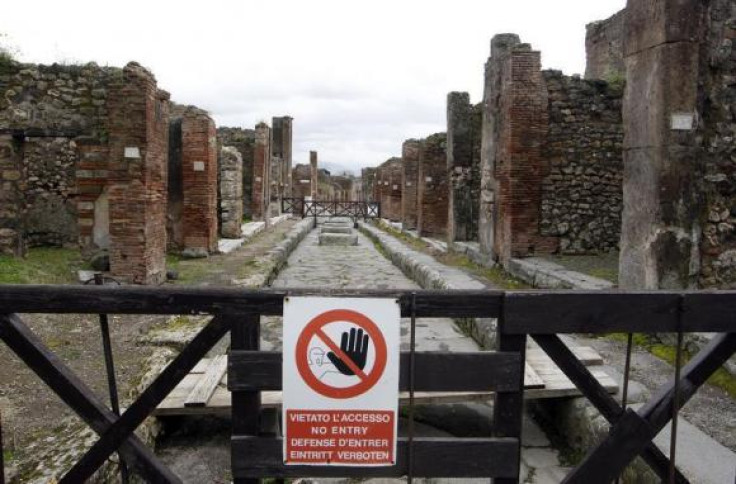Pompeii: Stolen Fresco Threatens Ancient Archaeological Ruins

A section of a fresco stolen at Pompeii has once again threatened the ancient archaeological site following a heavy rain wash away earlier this month.
A 20cm-wide section of the fresco was detached and stolen last week, the officials said.
The small section of the fresco depicted the goddess Artemis from a site known as the House of Neptune and Amphitrite, which is not currently open to the public, according to Reuters.
The police called the theft "particularly delicate" and said they had withheld the news of theft, which happened on 12 March, until now so as not to compromise their investigation.
The theft comes as another danger to one of the world's most famous archaeological sites and Italy's top tourist attraction, which has suffered several collapses over recent months.
Several sections of walls of the ancient Roman city have collapsed due to heavy rain that has prompted the government to upgrade maintenance of the crumbling world heritage site.
In February, the European Union launched a multi-million euro restoration of Pompeii, saying it would seek to protect it from the influence of local mafia.
Pompeii and Herculaneum, two Roman cities on the coast of the Bay of Naples in southern Italy, were buried under volcanic ash, within only 24 hours, after an enormous eruption by Mount Vesuvius in 79 AD.
The catastrophe left the cities' settlements, people, animals and the objects frozen, literally in time, in the lava and ash.
The buried cities were excavated 1700 years later and now provide great insight into Roman life in the first century.
© Copyright IBTimes 2024. All rights reserved.






